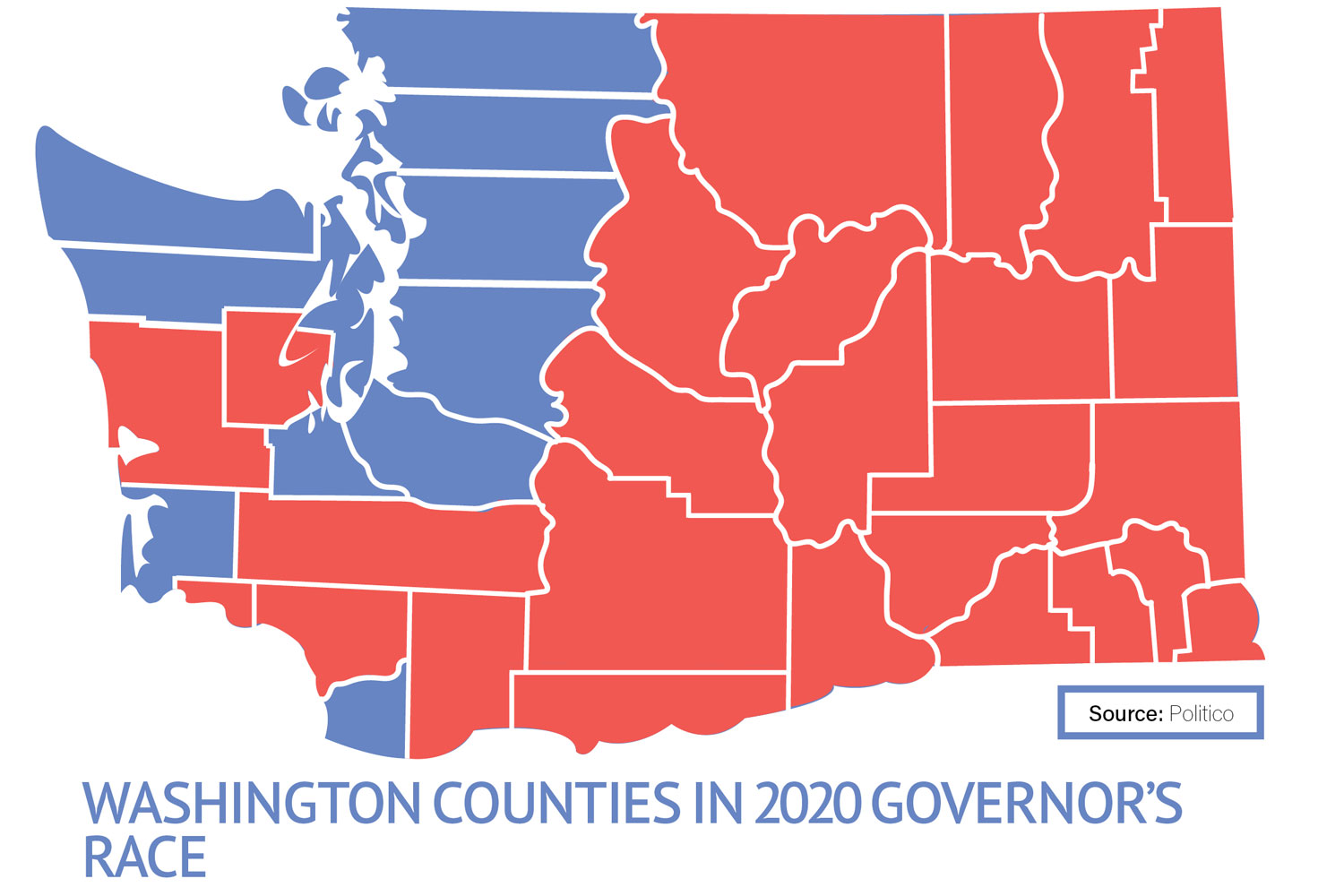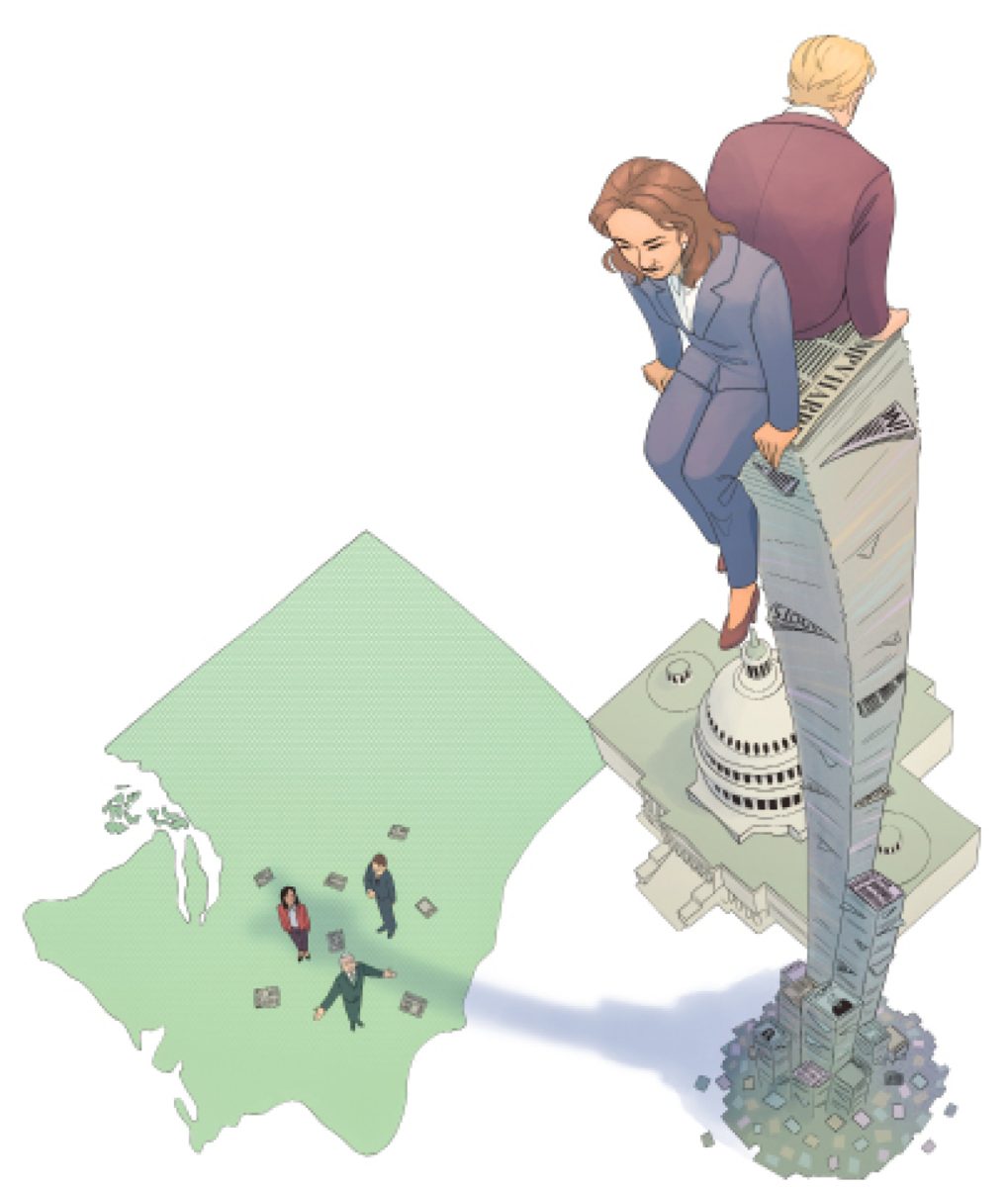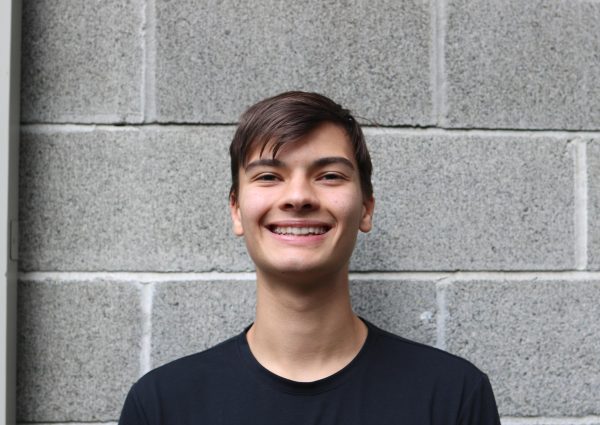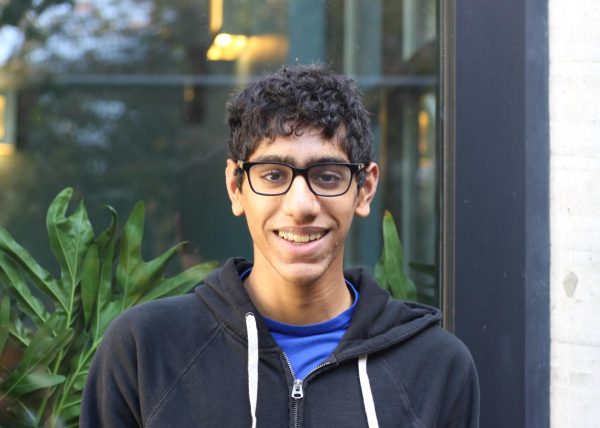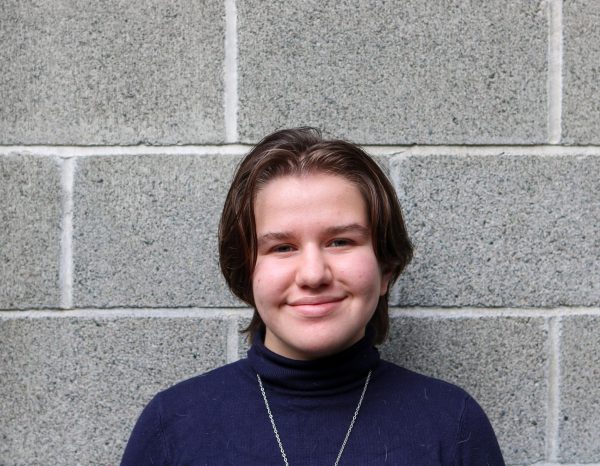Climate change, homelessness, and education are the key topics that students care about. While the two presidential candidates’, Kamala Harris and Donald Trump, stances on these issues are established, the views of the candidates running in Washington are more unknown. Media coverage focuses on the bigger and higher profile races when in actuality, the local elections will have a greater impact. Local races will affect the
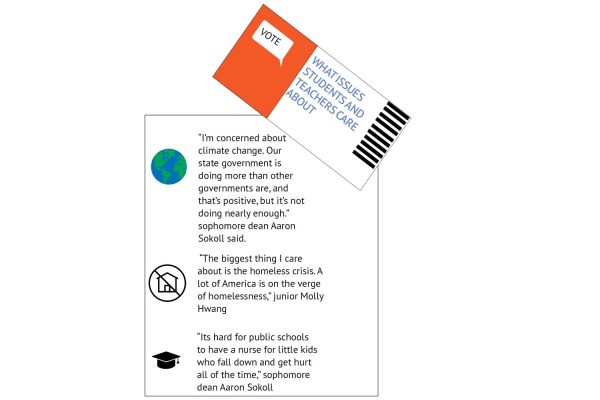
In a poll, The Puma Press asked 22 upper school students from all four grade levels what issues were most pressing in their communities. Students cited homelessness, education, and climate change as the most concerning issues.
Senior Emmett Arnold, who can vote, questions Seattle’s current methods of combating the homelessness crisis.
“I think someone with a more conservative worldview could make it better,” Arnold said. “Take, for example, Third Avenue in Seattle. Third and Pike is just infested with homelessness and needles and drugs. It’s like an open-air drug market. I don’t like it, and I don’t think it’s safe.”
“The biggest thing I care about is the homeless crisis,” junior Molly Hwang said. “A lot of America is on the verge of homelessness.”
According to the United States Census Bureau, approximately 31.6% of people in the United States are at risk of homelessness as of 2022.
History teacher and sophomore dean Aaron Sokoll stresses that students can impact elections in their communities.
“I try to get across as much as I can that our effect on local politics is far more significant than state and national politics,” Sokoll said.
Sokoll has firm beliefs about the state government’s treatment of the public education system. He is critical of the financial constraints placed on education in Washington.
Students like Hwang acknowledge that they know little about local or statewide races and instead hear much more about the high-profile candidates.
“I feel like the only things people talk about are the national elections,” Hwang said.
Hwang emphasizes that there must be a change in national media attention for her to care about local politics.
“Honestly, something that would need to change for me is for it to be a bigger topic of interest,” Hwang said. “I think it’s my responsibility to do more research because there are changes I want to see happen, and the way to make those chan
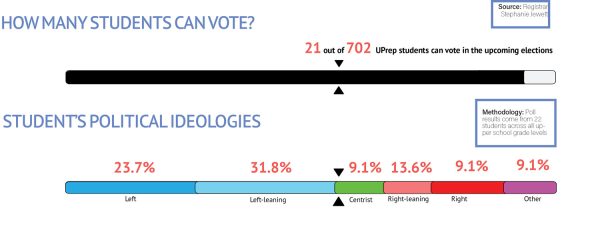
ges happen is to inform myself.”
Senior Sid Ramanathan, who like Hwang is ineligible to vote in the upcoming elections, also does not follow local politics closely.
“I don’t know much about Seattle’s local government,” Ramanathan said. “There’s a lot that goes on here because it’s a much bigger city. But I think there needs to be more outreach or education about how much local government does.”
Before moving to Seattle in 2018, Ramanathan lived in Beachwood, Ohio—a city of just under 14,000 people outside of Cleveland. Many of his political opinions and worries about the future stem from his time in a more rural area.
“They are a concern of mine,” said Ramanathan. “There are a lot of rural areas that have been left behind economically and socially, and they have stagnated over the last couple of decades.”
Sokoll identified global warming as one of the most pressing problems in the community.
“I’m concerned about climate change,” Sokoll said. “Our state government is doing more than other governments are, and that’s positive, but it’s not doing nearly enough.”
“The city budget has been cut by almost two hundred million dollars in the past two years,” Sokoll said.
Students can have a far greater impact when they “try to connect to local issues, to local groups, and advocate for better things for all their local communities,” Sokoll said. “Because that will ripple out.”Seattle Public Schools have reduced their budget by $90 million over the last two years, according to the district’s website.
“I have a son in public school. It’s hard for public schools to have a nurse for little kids who fall down and get hurt all of the time,” Sokoll said. “It’s hard for them to have counselors and social workers. It’s difficult for them to have art and music, and they just keep getting their budget cut. They have some kind of plan to solve the issues, but it is one of taking more away and not putting back.”
In Washington, the candidates for governor Republican Dave Reichert and Democrat Bob Ferguson, have made campaign promises to increase funding and support for schools and colleges in Washington. They have also laid out their plans to deal with homelessness, education, and climate change—some of the most pressing issues according to students at UPrep.
Even though Reichert and Ferguson both plan to combat climate change, their proposed policies are vastly different. Reichert supports Initiative 2117, which would repeal the Climate Commitment Act, while Ferguson wants to expand the act’s tax rebates. According to Ferguson, “the act helps fund a working families tax credit, which is helping out working families all across the state.”
“What I want to do differently with the Climate Commitment Act… take the tax credit and make sure we are investing even more into helping folks,” Ferguson said in a Seattle Times interview published on June 9, 2024.
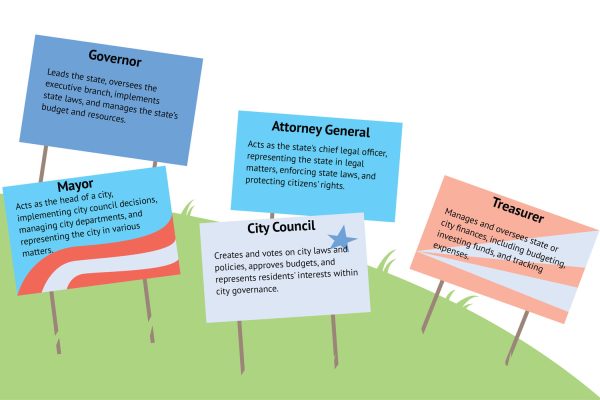
In a separate interview with The Seattle Times published on June 9, Reichert laid out his policies regarding existing environmental laws.
“I am against the environmental policies that have been set up, but I do think there is a balance that we need to strike,” Reichert said.
Sophomore Orrin Spiess asserts that we must be sustainable and climate-friendly without adversely affecting the wildlife in our state.
“We need to use more sustainable forms of energy,” Spiess said. “But you also need to find that balance between ensuring that it won’t have adverse effects on local wildlife.”
Both candidates also have plans to combat the growing homelessness crisis in Washington State. Reichert emphasizes that there needs to be better programs to prevent foster kids and newly released prisoners from ending up on the streets.
“I called young people who had actually been through homelessness and asked them what worked and what didn’t work,” Reichert said to the Seattle Times. “What I would do as governor is look again, re-evaluate, and evaluate the programs that are currently in use, and determine which of those programs help foster kids and people who are being released from prison.”
To combat the homelessness crisis, Ferguson wants to build more homes in Washington State.
“From my perspective, we should be building millions of new units of housing,” Ferguson said.
Hwang is critical of the state’s current approach to combating the homelessness crisis.
“There is this idea of how to address this [homelessness] where it’s like, just move them away, they’ll find somewhere else to go,” Hwang said. “But the reality is that the reason that they’re actually homeless is because there is no other option, so you’re not solving the problem. You are just moving the encampment somewhere else and also disrupting their lives.”
All of these issues directly affect the lives of Washingtonians and are often decided by city or state politicians. Sokoll urges his students to get involved in their communities.
